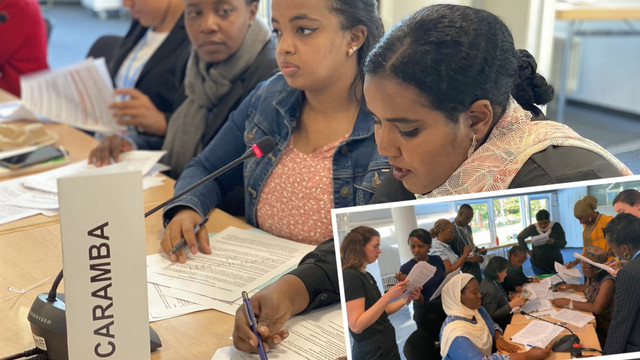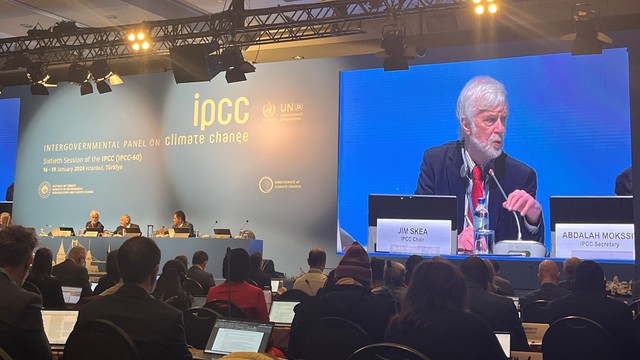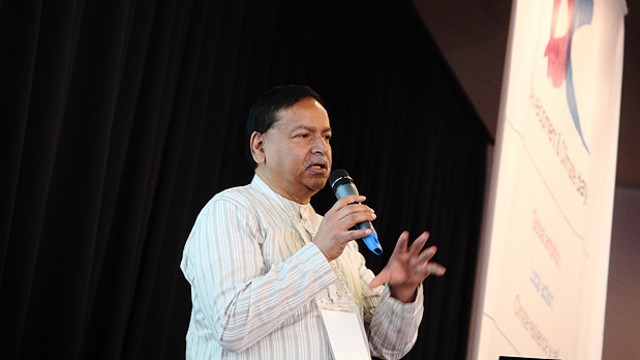How IIED is supporting the IPCC
As the Intergovernmental Panel on Climate Change (IPCC) embarks on its critical seventh assessment cycle, IIED is the host of IPCC chair Jim Skea.

Jim Skea launches the IPCC's seventh assessment cycle in Istanbul in January 2024 (Photo: Catherine Baker, IIED)
In July 2023 professor Jim Skea was elected as the chair of the Intergovernmental Panel on Climate Change (IPCC), the globally authoritative UN body assessing the science related to climate change.
Three months later, it was confirmed that throughout his term at the helm of the IPCC, Skea and his team will be hosted by IIED, which will support the chair’s office’s work bringing together experts from across the world to assess the science related to climate change, and the mitigation and adaptation solutions to address it.
He will remain an emeritus professor at Imperial College London.
In the IPCC chair role Skea is responsible for leading the IPCC bureau in setting the strategic direction of the IPCC over its seventh assessment cycle, which is expected to last five to seven years.
Skea has nearly 40 years of climate science experience and expertise, and has been involved with the IPCC since the early 1990s. In the sixth assessment cycle he was co-chair of working group III, assessing the mitigation of climate change.
Upon his appointment, he said: “Climate change is an existential threat to our planet. My ambition is to lead an IPCC that is truly representative and inclusive, an IPCC looking to the future while exploiting the opportunities that we have in the present. An IPCC where everyone feels valued and heard.
“In this, I will pursue three priorities – improving inclusiveness and diversity, shielding scientific integrity and policy relevance of IPCC assessment reports, and making the effective use of the best available science on climate change.”
IIED as host of the IPCC chair
Professor Skea's vision aligns with IIED’s commitment to inclusive research and evidence generation, robust scientific input, and impactful engagement with policymakers and stakeholders worldwide.
IIED’s executive director Tom Mitchell underscored the institute’s readiness to host Skea and the IPCC in assessing and communicating the scientific evidence of the climate crisis.
Mitchell pointed to IED’s continued support to the Least Developed Countries Group in the UNFCCC climate negotiations and its work with vulnerable communities as evidence of how the institute can act as a bridge between the climate scientists recording and predicting the trajectory of this emergency and the people who are already suffering its impacts.
IIED will coordinate with the UK government’s Department for Energy Security and Net Zero (DESNZ), Imperial College and the IPCC secretariat based in Geneva, which will continue to manage the day-to-day running of the IPCC.



